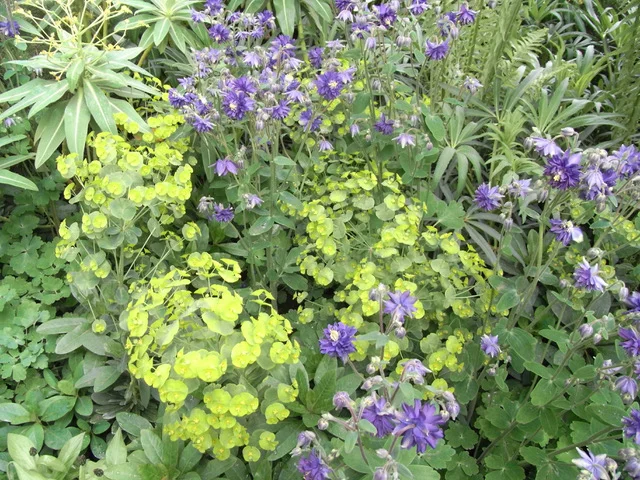Upcoming events - London in Bloom 2018
The London in Bloom awards are a way of recognising and encouraging the use of areas for food growing and developing green spaces to enrich neighbourhoods and improve air quality.
The Royal Horticultural Society supports the' It's Your Neighbourhood' category and this is the main award for community projects and kitchen gardens such as those in Kensington and Chelsea.
Taking part in the scheme is beneficial for plot holders as it raises the profile of our growing project. Each year we do well at the London in Bloom awards and we always have a lot of interest from other entrants who want to hear more about the scheme run by Royal Borough of Kensington and Chelsea.
Hints and Tips
Compost
Most sites have open sided compost bins, these also need watering throughout the summer and turning. William and Lisa are more than happy to come and show you how to get compost from them, and how to use then correctly. We will be running compost workshops at different sites throughout the summer and will let you know in advance when we will be at each garden.
Pesky slugs and snails
At this time of year tender seedlings seem to vanish overnight, the most common reason is the pesky slugs and snails who see them as a tasty feast. It is important that you keep the area around your plot tidy so they don't have any hiding places. Check under the rims of pots as well as underneath them. Any damp, dark hiding place is an ideal for them. You won't be able to get rid of them completely but here are a few suggestions that might help.
- Grapefruit they like to munch plants early in the morning, so you can try placing an upside down hollowed grapefruit shell at the edge of your plot as they will hide under it and eat the left over flesh.
- Beer traps slugs love a slurp of beer so you can plant a container in your plot with the rim about half an inch above the soil level and fill it half full of beer. The slugs will fall in and be unable to get out so drown.
- Solid copper rings of various diameter used to encircle single or small groups of plants to inflict a mild electric shock on the unsuspecting slug. Look for rings that clip together. These are easy to slip round established plant stems, or join together to form a larger barrier.
- Egg shells are an old favourite used to create a jagged barrier of crushed egg shells around your vulnerable plants. The decomposing egg shells also release a small amount of calcium, which can help with acidic soils.
- Plastic bottles cut the top and bottom from an old plastic bottle and place it over your plant to create a slug barrier. Sink it slightly into the ground to keep it in place and stop slugs burrowing underneath. For added protection, you could add a band of copper tape around the outside.
- Wool pellets shoddy, wool waste is a by-product of the wool manufacturing process. This is turned into pellets that you can spread around the plants as a barrier.They swell up and reveal nasty little fibres that are irritant to slugs. Over a period of time the pellets degrade and act as a plant food.
- Coffee grounds placed around the seedlings but not too close to the plant can act as a deterrent.
- Biological control is effective in small gardens if carried out with care early in the season. Basically, you water a solution of nematodes (microscopic worm like organisms). These penetrate the slug, infect it and kill it, not a pleasant thought but organic and effective. You usually buy from mail order. Storage and usage instructions must be followed if it is going to work. The amount you can buy would treat a whole kitchen garden! So, this method is best if the garden club gets together with all the plot holders and treats every plot, This should normally be done twice a year.
- Salt this kills slugs but it is not good for the soil or your plants.
Chickweed
Weeding
Remember to weed your plot regularly as chickweed loves this time of year and can produce up to 2,000 seeds per plant.
Also, you will see a lot of wild geranium, known as Herb Robert, taking over your plots and pots at this time of year. It is pretty but if left it can take over large swathes of ground. It is easily removed by pulling it up from the centre.
The weather has not been the gardener's friend this season with temperatures going from the high 20 degrees celsius to single figures in a matter of days. This can stress plants and you might see them 'bolt'. This means that they put on a rapid growth spurt, growing tall and leggy and start to flower too soon. Unfortunately, if this has happened there is no point trying to keep the plant going and you will be better off pulling it out and replacing it. It is most common with chard, spinach, pak choi and lettuces at this time of year.
The weather can also impact on your soil. If it dries out too rapidly it won't retain moisture, so even if you haven't planted much, please ensure you water your plots.
Good to plant now
If you want a harvest of courgettes, squashes, pumpkins or cucumber these should be planted out by now. Remember these grow rapidly and require regular watering. Tomatoes should also be coming along but please don't overcrowd them! A maximum of three plants per plot and feed them weekly once fruit begins to form.
Keep sowing salads, beetroot and radishes on a regular basis and do harvest them. Small firm radishes are delicious and crunchy - don't let them get spongy. Chili plants and aubergines will thrive in this warm weather but do require a sunny location!
Good housekeeping
As most of you are sharing spaces in the community kitchen gardens it is important to follow a few simple housekeeping guidelines so each garden thrives and flourishes.
- Please remember to clear away garden hoses and turn the tap off once you've finished watering
- Never trail a hose over other plots - this will damage and kill plants
- Always remove your own litter from the garden and take off-site
- Weed regularly to avoid seeds spreading throughout the garden
- Harvest produce when it's ready otherwise it will go to waste and attract unwelcome pests and possible diseases
Good luck with your gardening and enjoy your seasonal harvest!







